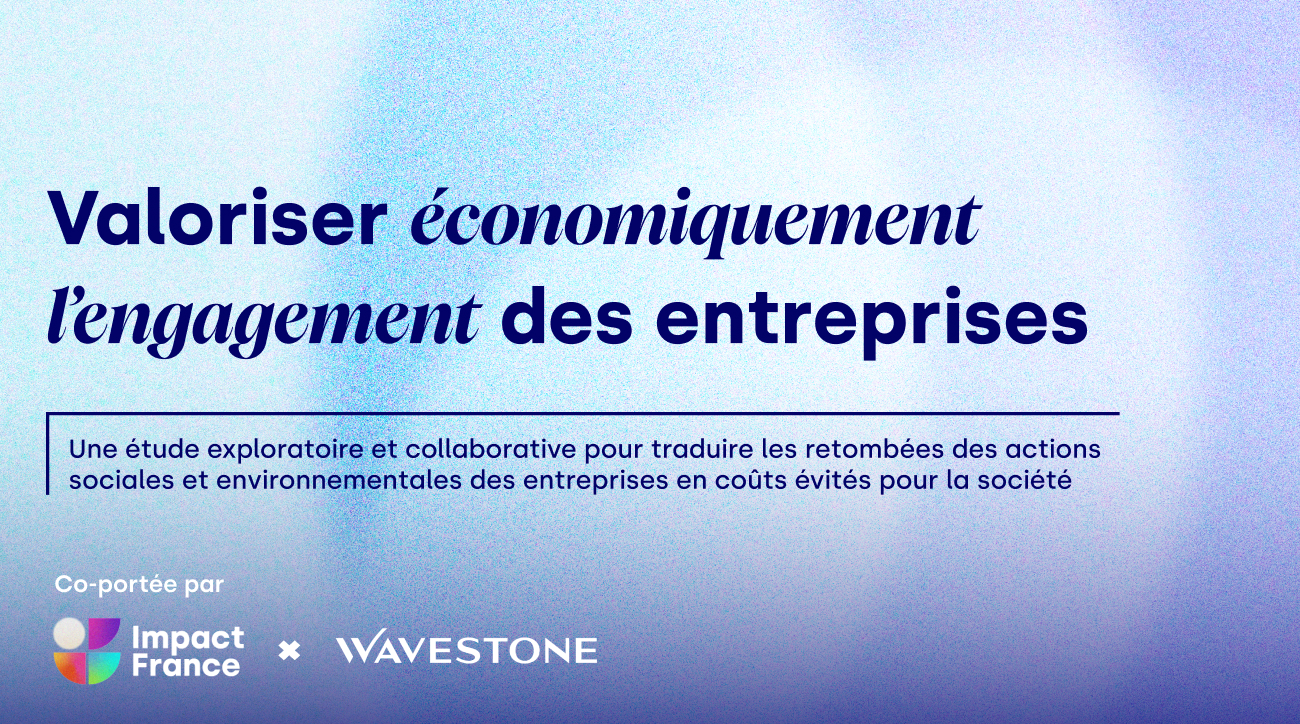Financing start-ups, the revenge of the Tech for Good?
%20(1).jpeg)
%20(1).jpeg)
The Tech for Good France task force of the Movement continued its work on the financing of the impact economy and tech for good startups during a third Night Session co-organized with FAIR , which brought together a hundred entrepreneurs and financiers from the tech ecosystem.
Faced with the fact that funding for tech innovation is drying up and after a string of record-breaking fund-raisings, investors seem to be focusing on new criteria: from the emergence of an increasingly preponderant and ambitious ESG policy to the valuation of profitability rather than hypergrowth, two elements that at first glance seem to favor tech-for-good companies, can we nevertheless talk about a true revenge of impact?
Clara Chappaz (La French Tech), Frédéric Mazzella (France Digitale), Eva Sadoun (Tech for Good France, Mouvement Impact France), Antoine Michel (Invsetir & +) and Olivier Jeannel (Rogervoice) were the guests of this third Night Session to deal with the subject!
In opening the debate, Clara Chappaz, who heads the French Tech mission, reminded us that if there is a fundraising crisis, the figures do not seem to indicate it, with 920 million euros raised in October 2022 to complete a year that probably looks like a record. Frédéric Mazzella, President of France Digitale completes, for him, funders still have deep pockets, more than in other European countries.
As for the financing of impact startups, Antoine Michel, partner at Investir&+, analyzes that, if volumes are stable, this masks the fact that some operations are not done, symbolizing the timidity of investors and an accentuation of the risks.
All in all, the pendulum is swinging back in a rather healthy direction, reliable and solid projects continue to find financing, investors are making good deals, all in a context where the level of financing is higher than in previous years.
For Clara Chappaz, the goal of 100 unicorns by 2030 is a target that will help to pull the ecosystem upwards, with a focus on the 25 green unicorns that will allow the development of programs and support for impact startups. Frederic Mazzella questioned the term "unicorn" because it is a supposed valuation that does not reflect the company's activity. Moreover, what is missing for investors is an exit perspective: a European NASDAQ that would allow to pull the ecosystem upwards.
Both agree that funding impact startups allows for the emergence of pioneering companies that can accelerate the momentum in favor of the impact economy. Success stories such as Ynsect or Blablcar would, according to them, allow to change the way funders look at impact startups and to change the selection and investment criteria.
According to Eva Sadoun, however, pointing to a few examples of impact companies that have successfully completed major financing rounds is not enough and does not help the cause of impact startups because they remain examples and do not allow VCs to fully grasp the impact economy. As a proof, it is still the traditional impact funds and institutional players that make up the bulk of impact startups' funding rounds.
For Eva Sadoun, the tech of tomorrow has no choice but to be for good, with "50 shades of good". If all startups can't be impactful "by design", it is essential to reexamine the role that tech has had in the current economic system's setbacks. Indeed, it is tech that has allowed consumerism to be deployed on a large scale and the economy to be disembodied, so it is tech's responsibility to provide sober solutions and to integrate the planetary limits into their core. Tech and the functioning of startups should also impose an adapted mode of operation with more advanced power and value sharing mechanisms than traditional companies.
Eva Sadoun and Clara Chappaz agree that the BPI must integrate strong incentive mechanisms for the transition, like the Rixain law on gender equality, towards an eco-conditionality of public aid.

